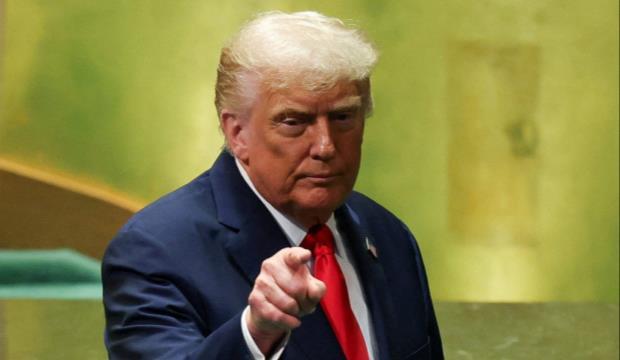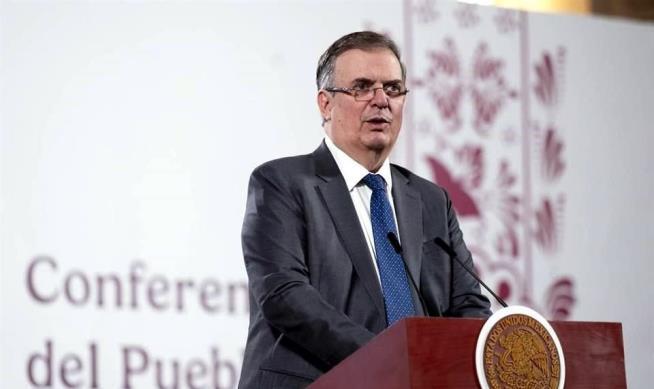






September 26th, 2025








September 26th, 2025
President Trump announced new tariffs under Section 232, ranging from 25% to 100%, set to take effect on October 1, 2025. The measures target pharmaceuticals, semi-trucks, kitchen cabinets, bathroom vanities, and furniture. The highest tariffs will apply to branded or patented drugs imported into the United States, though exemptions will be granted to pharmaceutical companies building US factories or covered by the July US-EU trade deal, which capped tariffs on European drugs at 15% Generic medicines may also avoid new duties, offering relief to India’s large pharmaceutical sector. Furniture imports, especially from China, Mexico, Vietnam, and Malaysia, will face tariffs of up to 50%, potentially driving up housing-related costs. Also, semi-trucks will be taxed at 25%, though the impact may be muted since most US heavy duty trucks are already produced domestically. Trump justified the tariffs as necessary to combat “flooding” of foreign goods and to protect US manufacturing under national security provisions The move heightens pressure on industries, particularly pharmaceuticals, which warn tariffs could reduce investment in US.
Source: THE NEW YORK TIMES


Amid the announcement of Mexico’s General Law of Tariffs for Imports and Exports (LIGIE), China launched an investigation into barriers to its goods, warning that such measures could harm bilateral relations and investor confidence. However, Secretary Ebrard insisted during a meeting with the Chinese Delegation that the move is a sovereign decision aimed at protecting domestic industries and correcting a trade deficit Meanwhile, the US and Mexico are deepening cooperation on semiconductors, framing regional integration as vital to reducing reliance on China. As China pushes back, its position will become pivotal in future USMCA negotiations, influencing how North America balances protectionism, industrial policy, and global competition.
Source: MINISTRY OF FINANCE
The consultation process with the private sector, known as the “Cuarto de Junto,” created during NAFTA talks and formalized in USMCA negotiations, was a business-led advisory body that supported Mexico’s trade negotiators. The government is now replacing it with a open organ that integrates regional business, corporate, and labor sectors to broaden representation. For USMCA negotiations, the change could imply more complex, plural consultations that could strengthen legitimacy but also slow decision-making, potentially complicating consensus with the US and Canada in sensitive trade discussions
Source: EL FINANCIERO


Secretary of Economy Ebrard denounced widespread abuse and falsification within the IMMEX program, noting companies report exports that never occur and accumulate inactive permits to maintain benefits. During a morning conference, he highlighted irregular practices in sectors like footwear and textiles. Authorities have suspended numerous companies and expelled others for simulating production processes, while some also faced sanctions for irregular imports. On this note, IMMEX 4 0 will be aimed at stricter supervision, and documentation of registries
Source: REFORMA
Banxico cut its benchmark rate by 25 basis points to 7 5%, citing inflation dynamics, peso performance, and weak economic activity The central bank left the door open for further reductions, while analysts expect cautious adjustments into 2026
Source: EL FINANCIERO


On September 9, 2025, the Executive branch submitted a Customs Law reform initiative as part of the 2026 Economic Package. It seeks to modernize the customs framework, strengthen tax collection, and combat smuggling, without creating new taxes. However, it introduces stricter controls that could increase compliance costs and risks for companies. Key measures include a 10-year patent renewal system for customs brokers, mandatory biannual certification, and joint liability with importers and exporters on valuation, tariff classification, and regulatory compliance For companies, temporary import terms are reduced, electronic documentation becomes mandatory, and penalties rise significantly. Overall, the reform could tighten trade oversight, raise compliance burdens, and impact manufacturers and logistics operators.
Source: EL ECONOMISTA
Mexico’s National Water Commission (Conagua) uncovered irregular use of 52,000 water concessions, originally granted for agriculture but diverted to real estate, golf courses, and other unauthorized purposes. Investigations using satellite technology and field inspections target illegal extractions, particularly in Chihuahua, Guanajuato, the State of Mexico, and Michoacán. Conagua has recovered 4 billion cubic meters of water, yet experts warn of severe environmental and social impacts, urging stronger water enforcement
Source: PRIMERA PLANA DIGITAL
Initiative With Draft Decree To Amend Article 63 And Add A Second Paragraph To Article 132 Of The Federal Labor Law
• Presented by: Sen. Jasmine María Bugarin Rodriguez (Nay - PVEM)
• Objective: Requires a minimum one-hour break during continuous work shifts and obligates employers to allow at least two 15-minute breaks for physical activity as part of employees’ rest periods.
• Status:2025-09-23 –Published in the Parliamentary Gazette
Initiative With Draft Decree To Amend Article 185 Of The Telecommunications And Broadcasting Law
• Presented by: Sen. María Del Rocío Corona Nakamura (JalPVEM)
• Objective: Grants users the right not to receive mass automated calls, robocalls, or calls from telemarketing centers offering promotions, services, messages, or any information without their prior express consent or request.
• Status:2025-09-23 –Published in the Parliamentary Gazette
Initiative With Draft Decree To Amend The Fourth Paragraph Of Article 25 Of The Political Constitution Of The United Mexican States, Regarding Environmental Responsibility
• Presented by: Sen. Jasmine María Bugarin Rodriguez (Nay - PVEM)
• Objective: Mandates that economic development in all productive sectors must adhere to environmental responsibility.
• Status:2025-09-23 –Published in the Parliamentary Gazette

Initiative With Draft Decree To Amend And Add Various Provisions To The Income Tax Law
• Presented by: Sen. Juan Antonio Martín del Campo Martín del Campo (AgsPAN) (View actor profile)
• Objective: Exempts income tax (ISR) on salaries and benefits below the annual average wage registered with the IMSS. Employers will not withhold ISR for employees earning less than the monthly average wage recorded by the IMSS in the previous fiscal year.
• Status:2025-09-23 –Published in the Parliamentary Gazette
Initiative With Draft Decree To Amend Article 44 Bis 4 Of The Law Of Credit Institutions
• Presented by: Sen. Jasmine María Bugarin Rodriguez (Nay - PVEM) (View actor profile)
• Objective: Requires development banks to create programs, projects, and online learning platforms to train users in digital tools, giving priority to indigenous and Afro-Mexican women.
• Status: 2025-09-23 –Published in the Parliamentary Gazette

